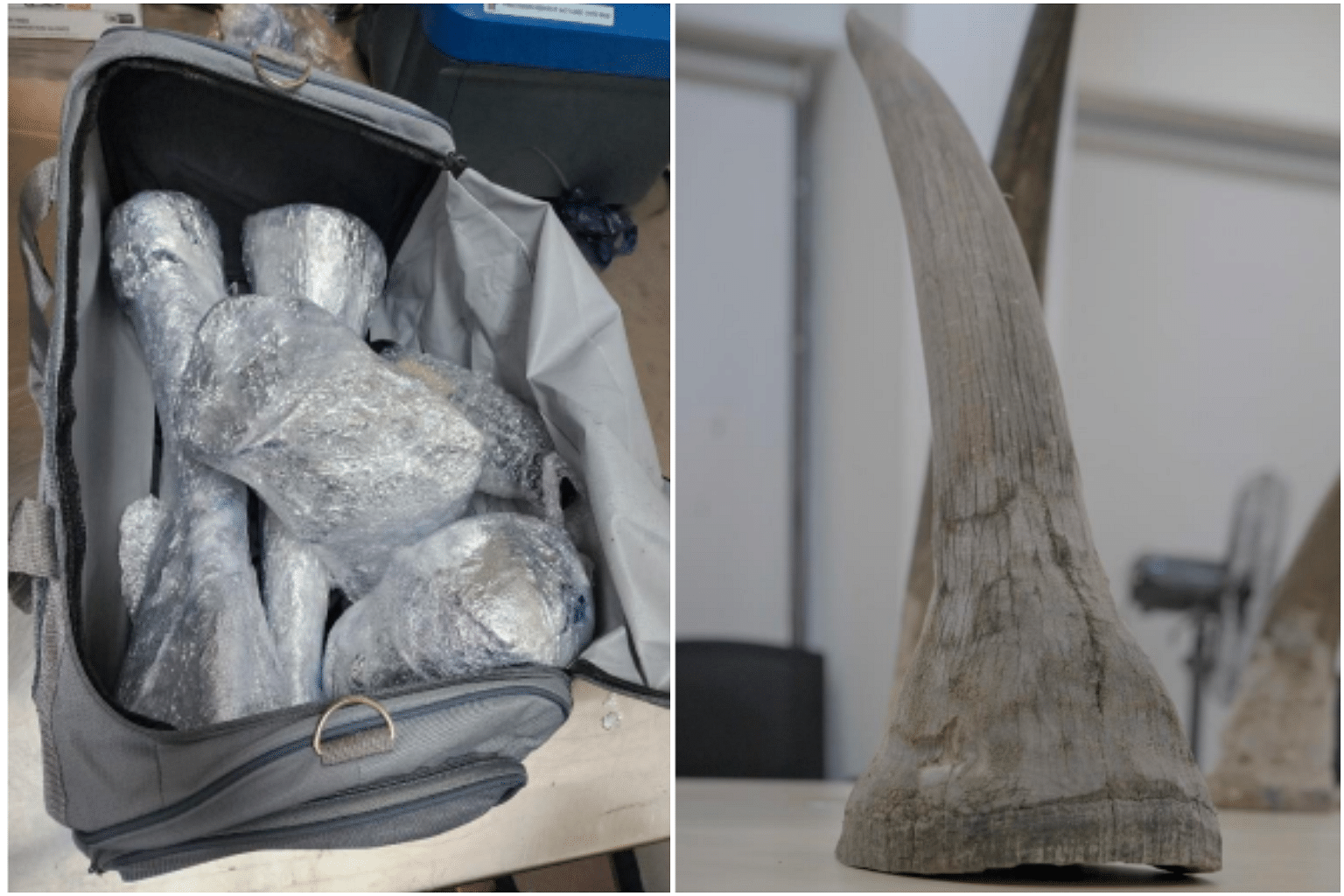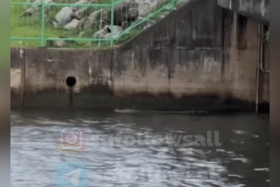Rhinoceros horns worth $1.2million recovered at Changi Airport, largest seizure to date
About 34kg of rhinoceros horns worth around $1.2 millionwere intercepted at Changi Airport on Tuesday in the largest seizure of rhinoceros horns in Singapore to date.
The horns were detected by officers from airport security and the National Parks Board's (NParks) K9 unit.
They found 20 pieces of the horns in two pieces of transit baggage bound for Laos.
The owner of the bags, who was travelling through Singapore from South Africa, was arrested immediately, said NParks on Wednesday.
"Rhinoceros are protected under the Convention on International Trade in Endangered Species of Wild Fauna and Flora (CITES) and international trade in rhinoceros horns is prohibited.
"Singapore is a signatory to CITES and is committed to international efforts to curb illegal wildlife trade to ensure the long-term survival of these animals," added NParks.
Genetic testing is currently being carried out at its Centre for Wildlife Forensics, to identify which species of rhinoceros the horns came from.
The horns will subsequently be destroyed, NParks said.
This is to prevent them from re-entering the market as well as to disrupt the global supply chain of illegally traded rhinoceros horns.
Under the Endangered Species (Import and Export) Act, an individual in possession of a CITES-scheduled species travelling through Singapore without a valid CITES permit will be liable to a fine of $50,000 per species (not exceeding $500,000).
They could also be jailed for up to two years.
The same penalties apply to those possessing or transporting parts and derivatives of CITES-scheduled species.

NParks said that Singapore adopts a zero-tolerance stance on the illegal trade of endangered wildlife species as well as their parts and derivatives.
"Our agencies collaborate closely in a multi-pronged approach, which includes working with our international partners, to maintain vigilance in regulating and enforcing against illegal wildlife trade," said NParks.
It added that the community can play a key role as well by ensuring their purchases do not contain animal parts of endangered species, and are not contributing to the demand for the illegal trade of wildlife.
The public can contact NParks if they spot any occurrences of illegal wildlife at cites@nparks.gov.sg.
Get The New Paper on your phone with the free TNP app. Download from the Apple App Store or Google Play Store now

